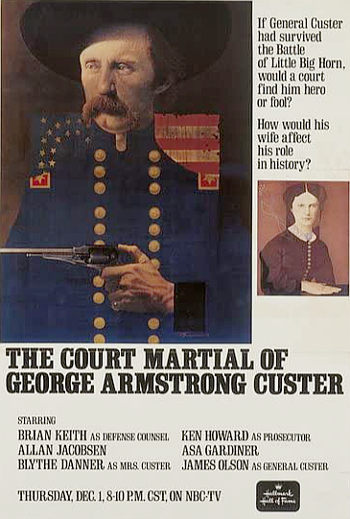 When cavalry patrols come across remains of soldiers at the Battle of the Little Bighorn, they find one survivor — none other than Col. George Armstong Custer.
When cavalry patrols come across remains of soldiers at the Battle of the Little Bighorn, they find one survivor — none other than Col. George Armstong Custer.
This will not do, Gen. Ulysses S. Grant decides. Custer will promote himself as a hero.
After all, he has political ambitions. And he’s already accused the Grant administration of corruption.
So his military allies come up with a plan: court martial the colonel. Pin the blame for the devastating defeat on him. It’s an idea Grant embraces.
Maj. Gardner is recruited to prosecute Custer. It’s not an assignment he relishes.
Prosecuting a man who’s a hero to many in the nation isn’t likely to make him popular. And losing the trial … well, it could lead to unwelcome consequences.
Mr. Jacobson defends Custer. He’s been defending him for one fool-hardy move after another over the years. But he has a special fondness for Mrs. Custer.
In the trial that follows, Jacobson wonders how Custer can be prosecuted for losing a battle at the Little Bighorn when many of the ranking members of the military lost battles during the Civil War, at a much higher cost in terms of lives lost.
Gardner, meanwhile, paints a picture of a womanizing, glory-hound, a man who puts his own best interests above the lives of his soldiers.
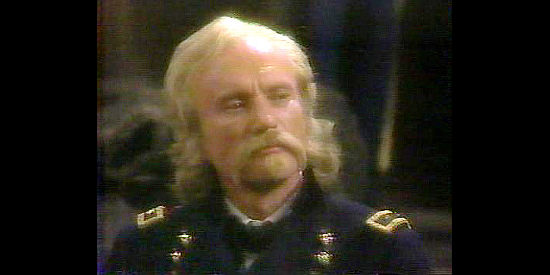
James Olson as Gen. Custer, watching his trial play out in The Court Martial of George Armstrong Custer (1977)
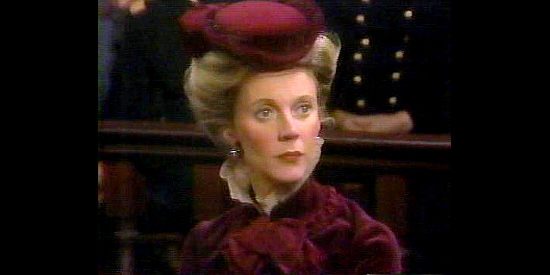
Blythe Danner as Mrs. Custer, watching her husband’s trial in The Court Martial of George Armstrong Custer (1977)
Wanna turn the Custer story into a massive bore?
These folks found a way to do it, with a cast headed by the nearly always bland Brian Keith and a “what if” tale that falls way short on drama.
James Olson gets little to do as Custer, except look confused most of the time. Blythe Danner is more lively as Mrs. Custer.
But you’re unlikely to gain any new understanding of Custer’s final hours by watching this film.
Though there is a rather scandalous suggestion as to why Mrs. Custer would put up with her husband’s philandering ways.
The film was based on a novel by Douglas C. Jones, published in 1976, the 100th anniversary of the battle.
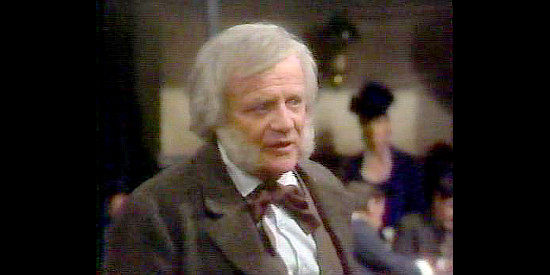
Brian Keith as defense attorney Jacobson, arguing a point in The Court Martial of George Armstrong Custer (1977)
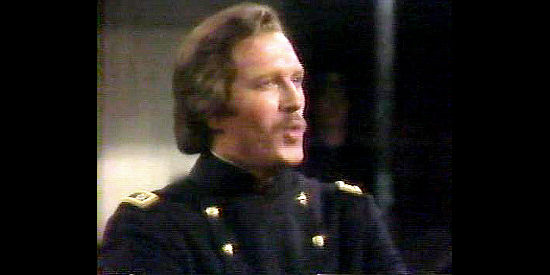
Ken Howard as prosecuting attorney Maj. Gardner, grilling a witness in The Court Martial of George Armstrong Custer (1977)
Directed by:
Glenn Jordan
Cast:
Brian Keith … Defense Attorney, Mr. Jacobson
Ken Howard … Prosecuting Attorney. Maj. Gardner
James Olson … Gen. Custer
Blythe Danner … Mrs. Custer
Nicolas Coster … Gen. Sheridan
William Daniels … Maj. Marcus Reno
J.D. Cannon … William Sherman
Bill McGuire … Alfred Terry
Duncan Gamble … Lt. Bradley
Len Lawson … Judge
Susan Sullivan … Linda Slaughter
Runtime: 90 min.
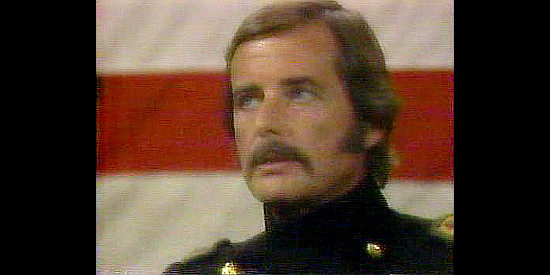
William Daniels as Maj. Marcus Reno, testifying in The Court Martial of George Armstrong Custer (1977)
Memorable lines:
Pruitt: “It’s Custer, sir. They say he’ll live.”
Grant: “Damn! Two hundred and twenty men killed, and he lives? Custer lives? Why? Why Custer? Good lord, the man doesn’t even have the decency to die of his wounds.”
Mrs. Custer: “Mr. Jacobson, you have known me for many years. And therefore, you think you know me well. In fact, you don’t know me at all. Luckily for both us us, you are defending my husband and not me.”
Prosecuting attorney: “The ambition of Colonel Custer is no mystery. Even his own defense attorney has just called him a god. Well, if he is a god, then he is a dangerous god and this army must be rid of him. The bones of every soldier buried at Little Bighorn rise up from their graves and cry out against him: ‘No more! No more!” No more of this bragging, strutting, primping peacock of a man. No more. No more Custer.”
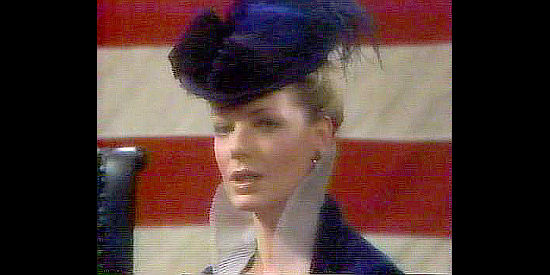
Susan Sullivan as Linda Slaughter, testifying about Custer’s efforts to root out corruption in The Court Martial of George Armstrong Custer (1977)
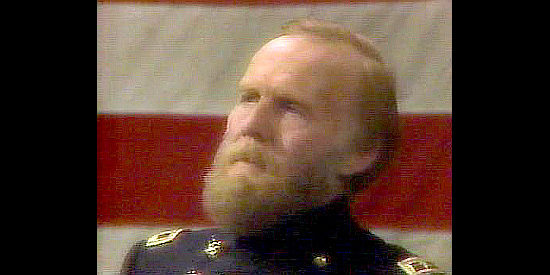
Bill McGuire as Alfred Terry, testifying that Custer disobeyed orders in The Court Martial of George Armstrong Custer (1977)

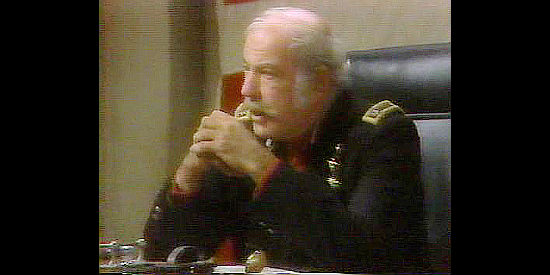
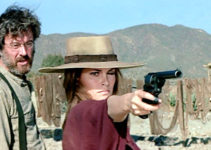
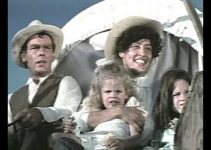
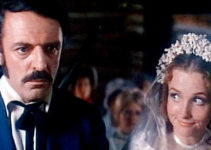
This concept had the potential to be a superbly gripping military courtroom drama, as you can only watch so many battles in the movies, that an entirely new approach should be welcomed, as there are a couple of other court martial films which have been huge successes, some based on true stories. I discovered this film whilst researching a similar idea for a What If ? had the senior commander present at a British defeat just three years later in 1879 had survived only to recover and face a court martial, This other officer (Col. A.W. Durnford) is widely termed a ‘British Custer’ dying in a last stand at Isandhlwana during the Zulu War 1879. I’’d very much like to see a remake of this Custer court martial on the big screen, with more modern actors, but with more believable portrayals, well-written dialogue and exciting interactions between the lawyers, panel members and witnesses in memorable scenes. I’m still envisioning such a mock trial film for my main interest, but this Custer film is a great visual aid when I describe the possibilities to other enthusiasts/historians. It is an unexpected gem due to its unique undertaking.